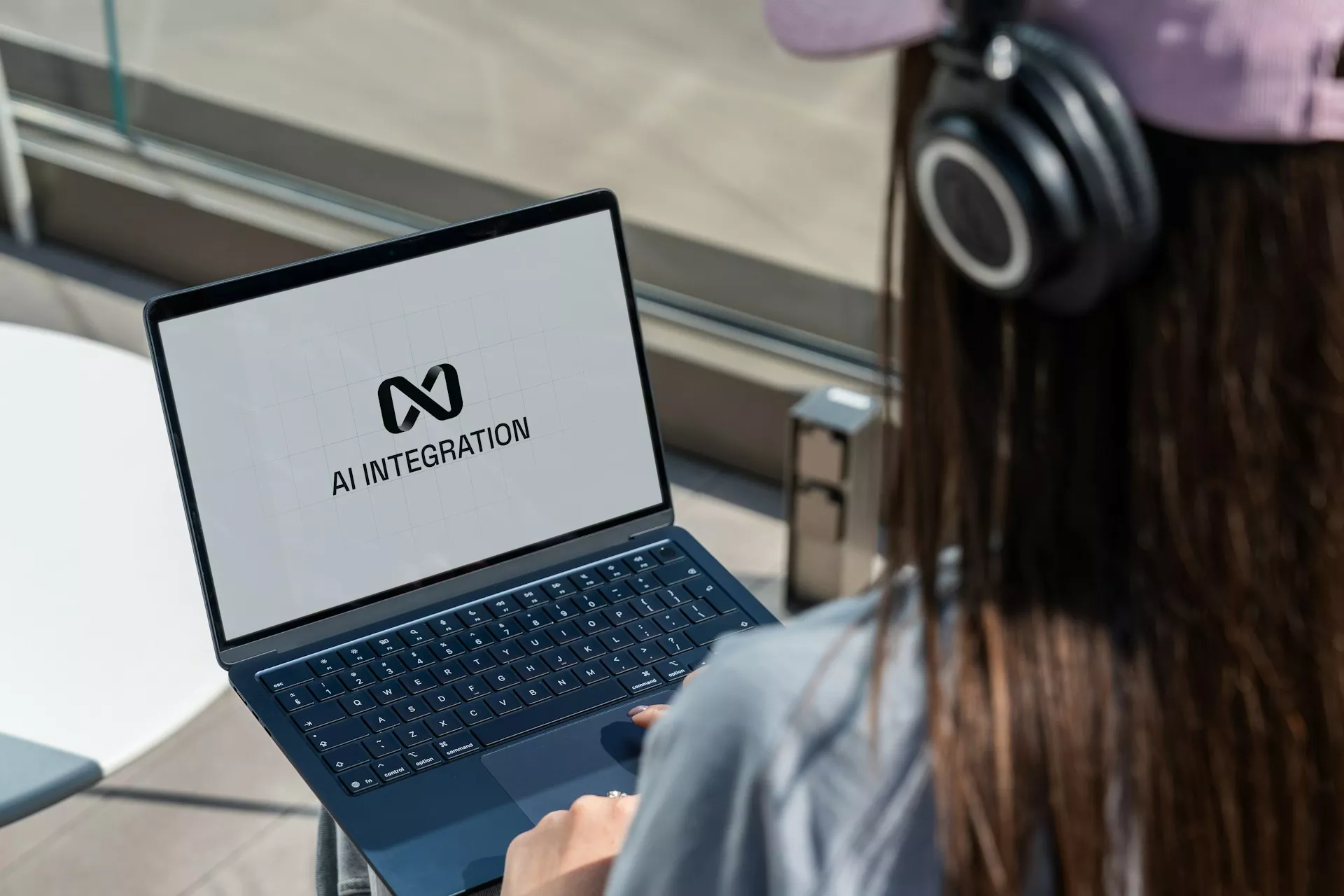What does the future of AI mean for small business?
Artificial intelligence, or AI, is no longer a buzzword reserved for big tech companies. It’s quietly transforming how small businesses operate — from automating invoices and predicting customer trends to simplifying banking and tax. What once required a team of people can now be handled by intelligent software that works around the clock. If you run a small business, the future of AI isn’t something to fear — it’s something to embrace. It’s an opportunity to save time, make smarter decisions, and grow faster with fewer resources. In this post, I’ll explain what AI really means for small businesses, how it’s already reshaping everyday tasks, and how tools like Thriday are leading the way in making business administration effortless.
.png)
What AI actually means — and why it matters
AI, at its core, is technology that can learn from data, recognise patterns, and make decisions with minimal human input. It’s not about robots taking over; it’s about using data intelligently to automate repetitive work.
For small businesses, AI can take many forms:
- Automation AI — systems that complete routine tasks like bookkeeping, scheduling or customer follow-ups.
- Analytical AI — tools that process information, identify trends and help forecast demand or revenue.
- Conversational AI — chatbots or digital assistants that handle customer enquiries or guide users through a process.
Until recently, AI was a luxury only large corporations could afford. Today, it’s embedded into everyday apps — from email filters and marketing platforms to accounting and banking software.
This accessibility means small businesses can now compete on the same level as larger players, using data and automation to drive better results without increasing headcount.
How AI is transforming small business operations
The beauty of AI lies in its versatility. Whether you’re a tradesperson, consultant, café owner or e-commerce retailer, there are countless ways AI can streamline how you work.
1. Marketing and customer engagement
AI can personalise how you talk to customers. Marketing tools can now predict what your audience will respond to, suggest the best time to send campaigns, and even write ad copy. This allows you to spend less time guessing and more time connecting.
2. Sales and customer service
AI-driven chatbots can respond instantly to enquiries, qualify leads, and provide support 24/7. This creates a smoother experience for customers and means fewer missed opportunities when you’re away from the desk.
3. Operations and logistics
From inventory tracking to delivery routes, AI helps predict demand, reduce waste, and plan resources more effectively. For service businesses, AI scheduling tools can automatically allocate jobs based on availability and travel time.
4. Finance and accounting
AI tools are now able to categorise transactions, reconcile accounts, and detect anomalies faster and more accurately than humans. They can also predict cash flow, helping you plan for quiet periods or upcoming tax payments.
These aren’t futuristic ideas — they’re already part of how smart small businesses operate today. AI has become the ultimate assistant that never gets tired, forgets, or makes calculation errors.

Why AI is a game-changer for small business owners
There are several reasons AI is the most powerful advancement for small business since the internet itself.
Time savings
AI eliminates repetitive manual tasks — from entering invoices to chasing overdue payments. That’s time you can reinvest in growth, customer relationships or simply having a life outside of work.
Accuracy and consistency
AI doesn’t guess or get distracted. It performs calculations and categorisations consistently, reducing human error and improving compliance — especially when it comes to finance and tax.
Cost efficiency
AI reduces the need to hire for certain administrative functions, which can save thousands each year. It also helps you do more with less, so you can focus spending on areas that grow your business.
Smarter decisions
With access to real-time data, AI tools give you insights that were once too complex or time-consuming to generate manually. You can make decisions based on facts, not assumptions.
Scalability
AI grows with your business. Whether you have 10 customers or 10,000, automated systems handle the same volume without additional effort or cost.
For small businesses, the message is simple: AI isn’t a threat to jobs — it’s a catalyst for freedom. It enables you to build a smarter, leaner business that runs efficiently even when you’re not there.
Thriday: AI in action
One of the best examples of AI transforming small business operations is Thriday — an all-in-one financial management platform that automates banking, accounting and tax.
At the heart of Thriday is Luca, an intelligent AI engine designed to remove the most painful parts of running a business.
Here’s how it works:
Banking made effortless
When you earn income, Thriday automatically allocates funds across your accounts — spending, savings, and tax — based on your chosen rules. This means your money is always organised, and you’ll never be caught short when tax time arrives.
Accounting that runs itself
Thriday automatically categorises every transaction, reconciles your bank feeds, and maintains your books in real time. There’s no need for manual data entry or reconciling invoices late at night.
Tax handled automatically
Because every expense and income item is tracked, Thriday uses AI to prepare your reports and tax summaries accurately. It ensures your BAS and EOFY obligations are ready with minimal effort and no surprises.
This is what the future of AI looks like for small businesses — a tool that learns, acts, and thinks on your behalf so you can focus on growth.
Instead of switching between your bank, accountant, and spreadsheets, Thriday brings everything together in one platform. It turns hours of manual work into minutes, giving you peace of mind and freeing you to focus on the parts of your business that matter most.
If you’ve ever wished you could “set and forget” your finances, Thriday makes that possible.

Overcoming the fears and misconceptions about AI
Despite its benefits, many small business owners still feel uncertain about using AI. Most of that comes from misunderstanding what AI actually does.
Let’s address some common myths:
“AI will replace my job”
AI doesn’t replace your expertise, creativity or relationships; it supports them. It handles the background tasks so you can focus on the high-value work that only a human can do.
“AI is too expensive”
Most AI tools are affordable or built into existing systems. Platforms like Thriday include advanced automation at a fraction of the cost of hiring external help or accountants.
“AI is complicated”
Modern AI tools are designed to be simple. They operate in the background, learning as they go. You don’t need technical skills, you just the willingness to try something new.
The truth is, AI is most powerful when it’s invisible. It quietly handles the repetitive work so you can operate more efficiently without changing how you run your business day to day.
How to prepare your business for the AI future
If you’re wondering where to start, the key is to think small and build from there:
1. Identify time-consuming tasks
Write down the tasks that take up the most time each week. Maybe it’s data entry, invoicing, or reconciling accounts. These are prime candidates for automation.
2. Start with one AI-powered tool
Begin by trialling one solution, such as Thriday for accounting or an AI marketing assistant for campaigns. Once you see results, you’ll gain confidence to adopt more tools.
3. Learn the basics of data
AI thrives on good information. Ensure your customer data, sales records and financials are accurate and up to date so the AI can make informed decisions.
4. Stay ethical
Be transparent with customers about how you use AI, especially if it involves data collection or automation. Use tools that protect privacy and comply with local regulations.
5. Keep learning
AI evolves rapidly. Make time to read blogs, attend webinars and listen to podcasts that help you stay ahead. A little curiosity can go a long way in keeping your business competitive.
Businesses that embrace AI early gain a clear edge. They make decisions faster, serve customers better, and operate with a level of precision that used to be impossible without large teams.

The next decade of AI and small business
The next ten years will bring even deeper AI integration across every aspect of business. Here’s what’s likely to happen:
1. Personal AI assistants for business owners
Soon, AI will act like a full-time digital employee. It will handle scheduling, respond to emails, and even make proactive recommendations based on your goals and finances.
2. Predictive analytics everywhere
AI will anticipate customer needs, cash-flow challenges and market changes before they happen. This will allow small businesses to make proactive moves instead of reacting late.
3. Smarter financial systems
Banking, lending and accounting will merge into single ecosystems. Platforms like Thriday are early examples. Thriday can manage money, record transactions, and optimise tax automatically.
4. Real-time compliance and reporting
Tax lodgement, payroll, and regulatory reporting will happen instantly in the background, eliminating the stress of end-of-quarter deadlines.
5. Democratised access to intelligence
AI will no longer be limited to companies with big budgets. Every business — from a sole trader to a growing franchise — will have access to tools that analyse data and offer insights once reserved for financial analysts.
This shift represents a massive opportunity. Businesses that embrace AI will enjoy faster growth, lower costs and happier customers. Those that don’t risk being left behind.

The human advantage in an AI world
AI can automate processes, but it can’t replace the human qualities that drive great businesses — empathy, creativity, and connection.
The best outcomes happen when humans and AI work together. The technology takes care of the repetitive groundwork, freeing you to focus on relationships, ideas and strategy.
For example, an AI tool can generate a financial forecast, but only you can decide how to act on it. AI can schedule your marketing emails, but only you can tell your story authentically.
That’s the future — a partnership between people and technology where both sides play to their strengths.
Turning complexity into simplicity
The future of AI is already here, and it’s changing the way small businesses operate for the better. It’s making work faster, decisions smarter, and finances easier to manage.
Tools like Thriday are leading this change, using AI to combine banking, accounting and tax automation into one simple platform. It’s proof that AI doesn’t just make things more efficient — it makes business life easier, calmer, and more rewarding.
If you’re ready to see what AI can do for your business, start by automating one task. You’ll quickly realise how much freedom you can reclaim once technology takes care of the admin.
The future isn’t about replacing humans — it’s about giving them more time to do what they love. That’s the true power of AI for small business.
DISCLAIMER: Team Thrive Pty Ltd ABN 15 637 676 496 (Thriday) is an authorised representative (No.1297601) of Regional Australia Bank ABN 21 087 650 360 AFSL 241167 (Regional Australia Bank). Regional Australia Bank is the issuer of the transaction account and debit card available through Thriday. Any information provided by Thriday is general in nature and does not take into account your personal situation. You should consider whether Thriday is appropriate for you. Team Thrive No 2 Pty Ltd ABN 26 677 263 606 (Thriday Accounting) is a Registered Tax Agent (No.26262416).






.svg)


.svg)











.webp)